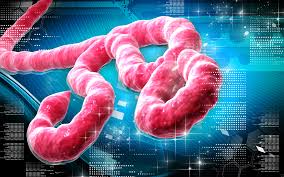
THE World Health Organisation (WHO) has said it is preparing for “the worst case scenario,” as it deals with a recent outbreak of the deadly Ebola virus in the Democratic Republic of Congo from spreading any further.
The health agency will begin sending vaccines “as quickly as possible” to the northwestern town of Bikoro and surrounding areas, where 18 people are suspected to have died as a result of the virus in recent weeks, WHO Director-General Tedros Adhanom Ghebreyesus said in a Twitter post on Friday.
A team of WHO experts, alongside regional health officials and staff from international medical charity Doctors Without Borders (known by its French initials, MSF), are working in Bikoro as part of a coordinated medical response to the crisis.
Laboratory tests undertaken earlier this week in the capital, Kinshasa, resulted in the only two confirmed cases of the virus, which has no proven cure, in Congo since the outbreak began.
According to WHO estimates, at least 12 others are suspected to have contracted the virus in the past five weeks, meaning 32 “suspected, probable and confirmed” cases of Ebola have now been registered in Congo since early April.
Three health workers are among those reported to have been affected.
50 Percent Fatality Rate
The average fatality rate among those infected with the virus is about 50 percent, according to WHO. Early symptoms include fever, muscle pain and fatigue followed by vomiting, diarrhoea, rashes and bleeding – both internal and external – apparent in the gums, eyes, nasal passages and faeces.
Ebola, discovered in 1976 and named after Congo’s northern Ebola River, is contracted by humans through contact with the blood, secretions, organs or other bodily fluids of infected animals, typically fruit bats, chimpanzees, gorillas and monkeys.
The virus is passed human-to-human by contact through the mouth, nose, or broken skin with blood or other bodily fluids of those infected.